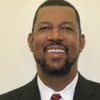Forum to Highlight Economic Competitiveness
This fall, the Central Illinois Workforce Development Board will sponsor the 2006 Workforce Forum, scheduled for 8 a.m. to 1:30 p.m. on October 11 at the Peoria Civic Center. The Forum will host three dynamic speakers: Marvin Zonis, Deborah Wince-Smith, and Ephraim Weisstein.
Marvin Zonis is a world-renowned authority on the global economy, leadership, and emerging technologies. Zonis has published several books, including his latest, Why The Kimchi Matters: Business and Local Realities in a Crisis-Driven World. He’s appeared on numerous network television news programs, and is currently an international analyst for WBBM-TV Chicago and professor emeritus at the University of Chicago’s Graduate School of Business.
Deborah Wince-Smith, president of the Council on Competitiveness, is an internationally recognized expert on science and technology policy, innovation strategy, and global competition. Wince-Smith was recently appointed as a member of the board of directors of NASDAQ Stock Market.
Ephraim Weisstein, vice president for Youth Development and Education at Commonwealth Corporation of Boston, Mass., leads a team that provides technical assistance to youth councils and statewide grassroots coalitions that support the development of comprehensive youth services. Weisstein is the creator of Diploma Plus, a new route to getting a high school diploma, which has been designated as an exemplary program by the U.S Department of Labor and the Nation Youth Employment Coalition. The Diploma Plus model is currently being replicated across the country under a grant from the Bill and Melinda Gates Foundation.
The 2006 Workforce Forum isn’t a traditional conference; rather, it’s an interactive executive forum, comprising an extended, meaningful conversation and the sharing of ideas and theories about the future of work. Topics will include:
• Changing demographics from low workforce growth projections and the retirement of the baby boomers, which is leading to possible worker and skill shortages and a shift to the global talent pool.
• Growing skill and worker shortages approaching some 30 million workers over the next 25 years.
• A critical skill shortage in a growing number of occupations, including healthcare, manufacturing, science, engineering, energy, and education.
• Occupational projections indicate the jobs of tomorrow will require higher skills, education, and training in reading comprehension, math, science, speaking, complex problem solving, writing, service orientation, and “soft skills” (i.e. effective communication, teaming, customer service, interpersonal relations, and diversity).
• Additional predictions indicate that 75 to 80 percent of tomorrow’s jobs will require education, training, or certification beyond high school.
• Lifelong learning and ongoing professional development will become workforce essentials.
• While increasing levels of education and training will be essential, U.S. students are falling behind students of other nations.
• The U.S. is facing increasing competition from emerging economies with substantial labor pools, including India, China, Eastern Europe, and Russia.
• The global competitors with growing economies are directly related to the quantity and quality of their respective workforces.
You’re invited to attend the 2006 Workforce Forum. Space is limited, so register today at www.WorkforceNetwork.com/2006Forum or call Lucinda Young at 495-8951.

